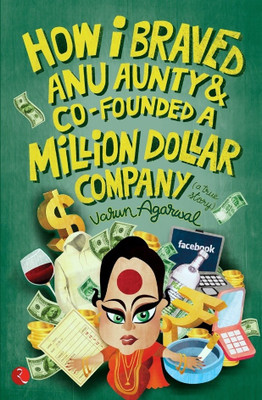-- Ravinar
I came across this book, which is a compilation of blogs written by the author at
media-crooks,
when a friend of mine shared one of the blogs criticizing the biased or
crooked role being played by Main Stream Media (MSM) and how Social
Media (SM) can take on MSM.
Rajdeep
Sardesai of CNN-IBN tweets that deaths in Assam in 2012 were very less
compared to deaths in Gujrat in 2002 to attract enough attention by
(his) MSM, when MSM was questioned about (lack of) coverage, and later
regrets for his insensitivity when SM blasts him.
Sagarika
Ghose of CNN-IBN does a 'live show' with recorded clippings as answers
to her 'live' questions and later 'deeply regrets' for 'the bug', when SM brings it out.
BBC
changes the headline of an article overnight from 'sarcastic question'
to a 'praise', as it was based on wrong statistics quoted by some source
and corrected later. And, SM gets credit here too.
And,
my favorite: A very active leftist friend of mine on SM comments on a
news website when a statue of Saraswati was destroyed inside a
University in Hyderabad - "Oh! these stupid Hindu fundamentalists are
going everywhere. Why did they build a temple inside a University? " :-)
As
people like me spend a good amount of their reading time reading news
and analysis (and some people spend a lot of time even watching such
things on TV), it is worthwhile to know the modus operandi of the
stuff that they are consuming. If the readers/viewers are not attentive
or patient enough to ponder, they would soon get sucked into the game
plan of these extremely glib liars, who are working full-time, pushing
their own person agenda under the veil of reporters.
Social Media as Watchdog
helps the reader precisely with such information. Though we see people
like Digvijay Singh making irresponsible and incoherent statements, why
does MSM go to him at the drop of a hat? Why does an anchor push his/her
own agenda and pass judgements and sermons, though the actual job is to
facilitate others speak and let audience ponder? Why do we see the same
set of people in all kinds of panel discussions? Why do large PSUs fund
several MSM events, which don't spend much in advertising otherwise?
Why does each news channel appear to have its own unique way of looking
at things? The list goes on...
So,
the bottom line is, one should consume news (whether MSM or SM) with
buckets of salt (pinches and grains are not enough anymore), as everyone
seems to have an agenda and are working for that 24/7 in every word
they utter, be it a TV show or news paper or Twitter or Facebook. Though
the author talks about how SM can help take on MSM, SM itself is
severely infested already, and the logic that the author applied to MSM
applies to SM as well.
As
a friend of mine cautioned me when I was picking up this book, the
author and his blog has clear politics behind it. And, my answer for
that was: "Yes,
it does. I noticed it in the introduction itself. But, when congress is
governing the country for the last 10 years, you can't 'start with'
criticizing BJP for today's state of affairs. And, As they say, not many
are into charity. All have vested interests. But, the good part of this
book is, if someone teaches you how to be skeptical, and if you really
learn it, you should ideally be skeptical about that teacher as well.
Otherwise, you have not really learnt. So, no harm" :-)





